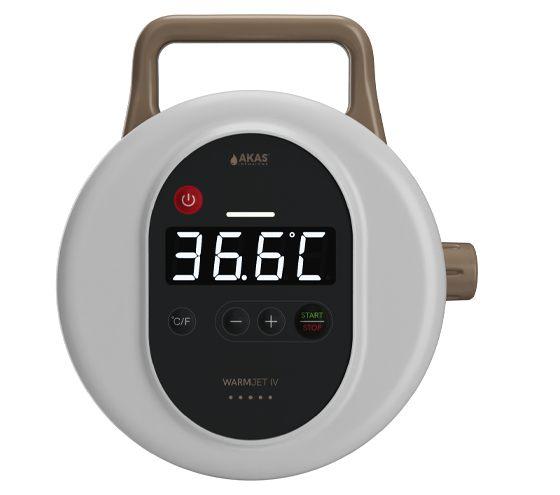How Fluid Warmers Enhance Your Hospital’s Infection Control Plan

Infection control remains a cornerstone of patient safety within hospitals and medical institutions. Every device and protocol is scrutinised to reduce the risk of healthcare-associated infections (HAIs). Among these, Fluid Warmer Machine, or simply fluid warmers, play an essential but sometimes overlooked role in maintaining sterile and safe clinical environments.
1. The Role of Fluid Warmers in Patient Care
Fluid warmers are used to gently heat intravenous fluids and blood products before administration to patients. This warming process prevents hypothermia, a common complication in surgical, trauma, and critical care patients. Maintaining patient core temperature not only supports physiological stability but also improves immune response, reducing susceptibility to infections.
2. Fluid Warmers and Infection Control Synergy
Integrating fluid warmer machines into infection control plans ensures that the equipment itself does not become a vector for contamination. Modern fluid warmers are designed with smooth, easy-to-clean surfaces and antimicrobial materials to minimise the risk of bacterial growth. This reduces the likelihood of cross-contamination between patients and helps maintain the highest standards of hygiene.
3. Choosing Fluid Warmers Designed for Sterile Environments
Hospitals should prioritise fluid warmers that meet strict infection control standards. These machines often feature sealed compartments, disposable warming sets, and user-friendly interfaces that reduce handling errors. Selecting equipment designed with infection control in mind supports hospital protocols aimed at limiting exposure to pathogens.
4. Preventing Contamination Through Proper Handling
Even the best fluid warmer machine cannot protect patients if not used correctly. Staff training on device handling, cleaning protocols, and timely replacement of disposable components is vital. Routine inspection and maintenance of fluid warmers contribute to a sterile environment and effective infection prevention.
5. Fluid Warmers and Reducing Healthcare-Associated Infections (HAIs)
Hypothermia in patients can weaken immune defences, making them more vulnerable to infections. By maintaining normothermia through warmed fluids, fluid warmers indirectly reduce the risk of HAIs. Hospitals focusing on infection control must consider fluid warmers an integral part of their patient care toolkit.
6. Streamlining Infection Control with Advanced Technology
The latest fluid warmer machines incorporate smart features such as digital temperature control, alarms, and integrated monitoring systems. These advancements help healthcare providers maintain precise warming without overhandling, thereby reducing potential contamination risks and improving patient safety.
7. Compliance with Hospital Infection Control Policies
Fluid warmers should align with a hospital’s infection control policies and regulatory standards. Devices approved by health authorities ensure compliance with sterilisation, cleaning, and material safety guidelines. This alignment is crucial for audit readiness and quality assurance in healthcare institutions.
8. Customising Fluid Warmers for Specific Clinical Settings
Different departments such as operating theatres, emergency rooms, and intensive care units have varying needs. Fluid Warmers can be customised or chosen based on these requirements, ensuring seamless integration with each area’s infection control procedures while optimising patient care.
9. Enhancing Workflow Efficiency While Maintaining Hygiene
Efficient clinical workflows reduce the time fluids are exposed to room temperature, lowering contamination risk. Fluid warmer machines that offer quick set-up and simple cleaning protocols support nursing staff in maintaining both infection control and treatment efficiency.
10. Collaboration Between Infection Control and Biomedical Teams
Successful infection prevention using fluid warmers requires collaboration. Infection control teams and biomedical engineers should work together to select, implement, and maintain fluid warmer machines that meet safety and hygiene standards.
11. Addressing Challenges in Infection Control with Fluid Warmers
Challenges such as device contamination or equipment downtime can impact infection control efforts. Investing in fluid warmers with reliable performance and straightforward cleaning procedures helps mitigate these risks.
12. The Importance of Regular Training and Protocol Updates
Regular staff education on fluid warmer machine use and hygiene practices is critical. Keeping protocols current with the latest infection control research ensures that fluid warmers continue to support safe patient care.
13. Fluid Warmers as Part of a Holistic Infection Control Strategy
Infection control is multi-faceted, involving hand hygiene, surface disinfection, and device management. Fluid warmers fit into this broader strategy by ensuring that fluid administration does not compromise patient safety or introduce infection risks.
14. The Environmental Impact of Fluid Warmers in Infection Control
Choosing fluid warmer machines that use disposable warming sets responsibly can reduce waste while maintaining infection control standards. Hospitals are encouraged to balance environmental concerns with clinical hygiene needs.
15. Future Trends: Smart Fluid Warmers and Infection Control
Emerging fluid warmer technologies focus on automation, remote monitoring, and enhanced sterilisation features. These innovations promise to further integrate fluid warmers into hospital infection control plans with greater ease and safety.
Conclusion
Fluid warmers are vital components of hospital infection control plans, contributing significantly to patient safety by preventing hypothermia and reducing infection risks. Selecting fluid warmer machines that prioritise hygiene, ease of cleaning, and compliance with health regulations enhances the effectiveness of infection prevention strategies. Hospitals benefit from partnering with trusted manufacturers who design advanced, reliable devices tailored for modern medical care.
Akasinfusion stands out as a manufacturer of world-class drug delivery devices, including volumetric pumps, that meet the highest standards of safety and performance. Their commitment to innovation and quality supports healthcare providers in delivering exceptional care while upholding rigorous infection control protocols.





